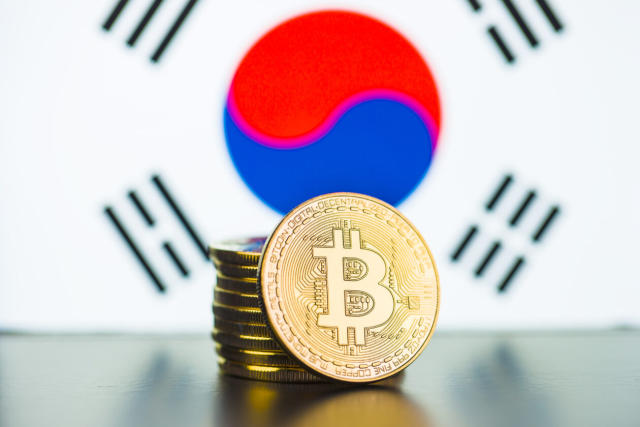
In the dynamic and evolving landscape of South Korean politics, major political factions are strategically incorporating cryptocurrency incentives into their campaign promises, aiming to galvanize support from a digitally savvy electorate ahead of the imminent parliamentary elections.
A notable stance emerged from a Bloomberg report dated April 5, where the opposition Democratic Party pledged to dismantle existing barriers against both domestic and international exchange-traded funds (ETFs) that hold crypto tokens, such as the sought-after United States-based spot Bitcoin ETFs. This move comes on the heels of Bitcoin ETF approvals in January, which, despite regulatory warnings about potential conflicts with domestic laws, marked a significant pivot towards crypto integration into mainstream financial products.
Hwanseok Choi, representing the Democratic Party, affirmed their commitment to enabling access to these ETFs, irrespective of their origin, aligning with the party’s manifesto’s broader financial innovation and inclusivity goals.
A Delay in Digital Asset Taxation
In a parallel effort to appeal to the crypto-conscious demographic, President Yoon Suk Yeol’s People Power Party has proposed a postponement of the impending taxation on profits from digital assets, initially scheduled for implementation in 2025. This policy adjustment is aimed at fostering a more conducive environment for cryptocurrency investment and innovation within the country.
The growing integration of cryptocurrencies into South Korea’s economic fabric is underscored by the significant engagement of the populace with digital assets. Government statistics reveal that in the first half of 2023 alone, nearly six million South Koreans, accounting for 10% of the population, engaged in crypto trading through registered exchanges. Additionally, 7% of election candidates have disclosed ownership of cryptocurrencies, illustrating the digital asset’s penetration into political spheres as well.
Investments in crypto-linked assets further highlight the trend, with over $200 million invested in shares of MicroStrategy, a U.S.-listed firm with substantial Bitcoin holdings, thus earning it the moniker of “essentially a leveraged Bitcoin ETF” among some analysts.
Anticipated Regulatory Tightening
Despite the politically charged promises, the South Korean public remains cautious, anticipating stricter regulatory oversight on crypto assets. Forthcoming regulations aimed at enhancing the governance of token listings on centralized exchanges are expected to introduce stringent measures, including prohibitions on listing digital assets compromised by hacking incidents until their causes are thoroughly investigated.
Additionally, the criteria for foreign digital assets to be listed on domestic exchanges will be tightened, mandating the availability of a white paper or technical manual for local investors. This shift towards greater transparency and security is part of a broader effort to safeguard investor interests in the volatile crypto market.
The Virtual Asset Users Protection Act
A significant legislative development is the imminent enforcement of the Virtual Asset Users Protection Act, set to take effect on July 19. This act aims to clamp down on unethical practices within the crypto space, including the use of undisclosed information, market manipulation, and illegal trading activities. An update to the act in February introduced severe penalties for violations, including imprisonment and hefty fines, emphasizing the government’s commitment to creating a safer and more regulated digital asset ecosystem.
To distill the essence of the evolving political and regulatory landscape in South Korea concerning cryptocurrency, here are some key takeaways:
- Political Promises: Major parties are incorporating crypto-friendly policies to attract voters, with promises ranging from access to international crypto ETFs to delayed taxation on digital asset profits.
- Crypto Adoption: A significant portion of South Korea’s population and political candidates are engaged in cryptocurrency trading, indicating widespread adoption.
- Investment Trends: South Koreans have shown a keen interest in crypto-related investments, notably in companies like MicroStrategy, perceived as indirect exposure to Bitcoin.
- Regulatory Outlook: Anticipation of tighter regulations on crypto assets looms, with new rules expected to enhance the transparency and security of token listings and trading practices.
| Proposed Policy | Regulatory Change |
|---|---|
| Access to domestic and international ETFs | Stringent rules for token listings, including hack investigation requirements |
| Delay in digital asset tax implementation | Enforcement of the Virtual Asset Users Protection Act with strict penalties |
South Korea approaches its parliamentary elections, the interplay between political promises and regulatory realities paints a complex picture of the country’s future in cryptocurrency governance. While political factions vie for the support of the crypto-engaged electorate with attractive promises, the looming specter of tighter regulations serves as a reminder of the delicate balance between fostering innovation and ensuring market integrity and investor protection. As this dynamic unfolds, the impact on South Korea’s digital asset landscape and its position in the global cryptocurrency market will be closely watched.
Featured image credit: Danny Park via Yahoo Finance
